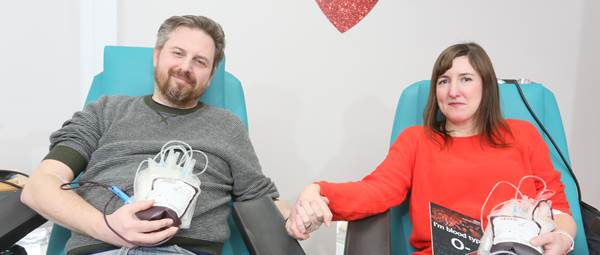Ask the experts
Donations of blood, platelets and plasma are simple and easy ways to make an immeasurable impact to other people’s lives.
They are, however, still a marvel of modern medicine and it’s common for donors to have questions about the process.
Thankfully, the experts in our clinical support team are on hand with the answers…
Why do I need to cross and uncross my legs while I donate?
When you donate blood, you lose part of your overall blood volume temporarily (don’t worry – it reaches a normal level again quickly!) When your blood volume drops, your blood pressure does too.
It’s important to keep your blood pressure up and applied muscle tension (movements like crossing your legs and clenching your bum) has been shown to do just that, meaning you’re less likely to feel dizzy or faint after your donation.
We ask you to use applied muscle tension in your lower body as it won’t affect the needle in your arm. All you have to do is cross and uncross your legs every now and again, or give your glutes a squeeze for a few seconds, and your risk of feeling unwell after you donate should be much less.

Can I donate if I’ve taken over-the-counter painkillers?
It is fine to donate having taken most over-the-counter painkillers, including paracetamol and ibuprofen. Ibuprofen, however, is an anti-inflammatory medication, which affect your platelets and can make them unsuitable for patients. You must tell staff that you are taking anti-inflammatory medication before you donate so that they can choose the right blood pack for your donation.
The reason you have been taking painkillers may prevent you from giving blood, so the most important thing is to check the eligibility section of blood.co.uk for information.
For example, if you’ve taken paracetamol because of a headache, you may donate if it has cleared by the time you attend your appointment. If you have headaches which are regular (more than one a week) or severe, you should not donate.
Please be sure to tell staff about any recent medication, over-the-counter or prescription, you have taken.

